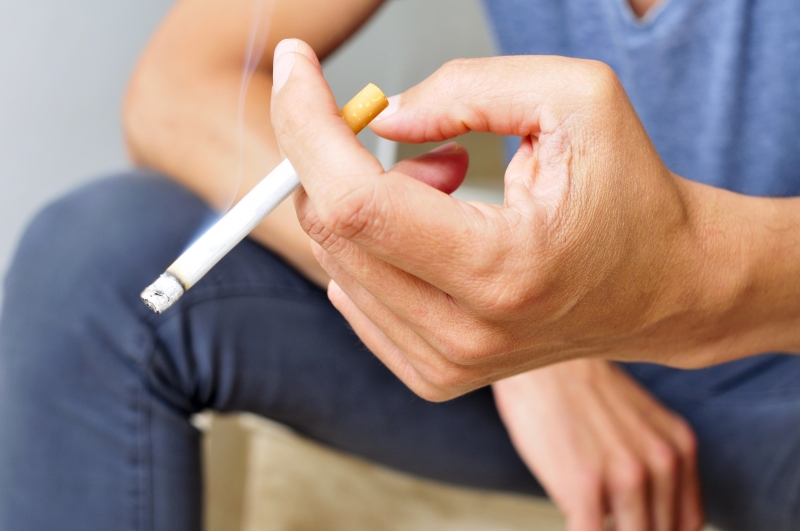Direct Comparison
For this study, researchers looked at dental implants placed in the rear of the mandible (lower jaw) for 16 smokers and 16 nonsmokers. The smokers were considered heavy smokers, smoking an average of 20 cigarettes a day (pack-a-day smokers). A total of 45 implants were placed, and healing was tracked closely.
All implants saw stability of the implants diminish in the first two weeks. In nonsmokers, stability began to increase after that, showing signs of integration with the jawbone. However, in smokers dental implants were loose for another week before the implants started gaining stability again. They gained stability more slowly, and through 8 weeks post-surgery, dental implants in smokers had significantly lower stability. But by 12 weeks after surgery, all implants were fully stable. Tooth restorations were not placed on the teeth until 12 weeks.
Patients were followed for a total of one year. No implants failed in either smokers or nonsmokers, but the smokers had more complications. They experienced more areas of soft tissue in the bone and more marginal bone loss. Both of these could be signs of future failure risk.
What Can We Learn from This?
This doesn’t really change the major insights about smoking and dental implants. Smoking increases the risk of complications with dental implants. It also likely increases the failure rate of implants.
This study didn’t show an increased risk of failure, but it also didn’t prove that the failure rate isn’t higher. Instead, with a small number of implants, we wouldn’t necessarily expect even a single implant failure over the course of the first year. And even if one had failed, it wouldn’t be enough to show the difference between the two groups. That takes a much larger study.
This study does, however, remind us that putting restorations on the same day as surgery isn’t a good idea for every candidate. Some people, especially smokers, benefit from giving their dental implant more time to heal.
The study also shows that, with proper management, even people with high risk factors can have good success with dental implants.
If you are considering dental implants in the Hilton Head area, we can help you determine the best approach to maximize your odds of success. Please call (843) 706-2999 today for an appointment with an implant dentist at Beyond Exceptional Dentistry.





